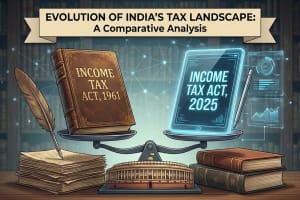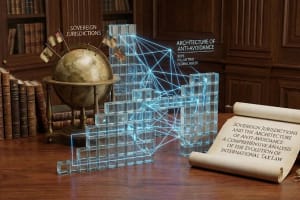
Important Case Laws on Section 36(1)(iii) of the Income Tax Act

Deduction of Interest paid on borrowed capital is governed by the provisions of the Section 36(1)(iii), which is one the most controversial and litigative section in the Act. It allows deduction of the amount of interest paid in respect of capital borrowed for the purposes of business. The provisions of the Section 36(1)(iii), as on date, provides as under:
(iii) the amount of the interest paid in respect of capital borrowed for the purposes of the business or profession :
Provided that any amount of the interest paid, in respect of capital borrowed for acquisition of an asset (whether capitalised in the books of account or not); for any period beginning from the date on which the capital was borrowed for acquisition of the asset till the date on which such asset was first put to use, shall not be allowed as deduction.
Explanation.—Recurring subscriptions paid periodically by shareholders, or subscribers in Mutual Benefit Societies which fulfil such conditions as may be prescribed, shall be deemed to be capital borrowed within the meaning of this clause;
This section was amended twice viz: by Finance Act 2003 and Finance Act 2015. The purpose of both amendments is discussed as under:
Finance Act 2003
By the Finance Act 2003, following proviso was inserted:
Provided that any amount of the interest paid, in respect of capital borrowed for acquisition of an asset for extension of existing business or profession (whether capitalised in the books of account or not); for any period beginning from the date on which the capital was borrowed for acquisition of the asset till the date on which such asset was first put to use, shall not be allowed as deduction.
Before the amendments, a deduction was allowed in respect of interest on capital borrowed for the purposes of business or profession. The said provision has been prone to litigation on the issue of allowability of interest on borrowings for acquisition of assets for extension of business for the period during which the asset was not yet put to use. It is, therefore, provided that with effect from assessment year 2004-05, no deduction will be allowed in respect of any amount of interest paid, in respect of capital borrowed for acquisition of asset for extension of existing business or profession (whether capitalized in the books of account or not). Further, the disallowance is restricted to interest for the period beginning from the date on which the capital was borrowed for the acquisition of the asset till the date on which such asset was first put to use.
Thus the amendment neutralises the judgments where it was held that interest on capital borrowed for acquiring assets for extension of business, even if it relates to a period before the asset is put to use, is allowable as a deduction.
DCIT v. Core Healthcare Ltd. [2001] 251 ITR 61 (Guj.);
Calico Dyeing & Printing Works v. CIT [1958] 34 ITR 265 (Bom.);
ACIT v. Southern Founders [1979] 120 ITR 37 (Kar.);
CIT v. Insotek (P.) Ltd. [1984] 150 ITR 195 (Kar.);
CIT v. Tata Chemicals Ltd. [2002] 256 ITR 395 (Bom.)] The Supreme Court has also dismissed the Special Leave Petition filed by the Income-tax Department against the order of the Bombay High Court in the case of Tata Chemicals Limited
Finance Act 2015
By the Finance Act 2015, the words "for extension of existing business or profession" in proviso was omitted. The CBDT explain the rationality behind the said amendment as under:
Circular No. 19/2015, Dated 27-11-2015
- Alignment of provisions relating to capitalisation of interest and claim of deduction of bad debts with the provisions of the Income Computation and Disclosure Standards (ICDS)
16.1 The Income Computation and Disclosure Standards (ICDS)-IX relating to borrowing costs provides for capitalisation of borrowing costs incurred for acquisition of assets up to the date the asset is put to use. The proviso to clause (iii) of sub-section (1) of section 36 of the Income-tax Act provided for capitalisation of borrowing costs incurred for acquisition of assets for extension of existing business up to the date the asset is put to use. However, the provisions of ICDS-IX do not make any distinction between the asset acquired for extension of business or otherwise.
16.2 Therefore, there was an inconsistency between the provisions of proviso to clause (iii) of sub-section (1) of section 36 of the Income-tax Act and the provisions of ICDS-IX. The general principles for capitalisation of borrowing cost requires capitalisation of borrowing cost incurred for acquisition of an asset up to the date the asset is put to use without making any distinction whether the asset is acquired for extension of existing business or not. The Accounting Standard Committee, which drafted the ICDS, also recommended that there is a need to carry out suitable amendments to provisions of the proviso to clause (iii) of sub-section (1) of section 36 of the Income-tax Act for aligning the same with the general capitalisation principles.
16.3 In view of the above, the provisions of proviso to clause (iii) of sub-section (1) of section 36 of the Income-tax Act have been amended so as to provide that the borrowing cost incurred for acquisition of an asset shall be capitalised up to the date the asset is put to use without making any distinction as to whether an asset is acquired for extension of existing business or not.
16.4 The provisions of the ICDS are applicable for computation of income and not for the purposes of maintenance of books of account. There may be cases where the income is recognised for computation of taxable income in accordance with the provisions of ICDS without recording the same in the books of account and such income may be required to be reversed in accordance with the provisions of the ICDS. For claiming bad debt, the provisions of section 36(1)(vii) of the Income-tax Act, inter alia, require that the amount should be written off in the accounts of the assessee.
16.5 Therefore, the reversal of income in accordance with the provisions of the ICDS may not be allowable on the ground that same has not been written off in the accounts as per the provisions of section 36(1)(vii) of the Income-tax Act. In view of this, a proviso has been inserted in section 36(1)(vii) of the Income-tax Act so as to provide that for claiming deduction under section 36(1)(vii) of the Income-tax Act, the income which have been recognised as per the provisions of ICDS without recording in the accounts and is required to be written off as irrecoverable as per the provisions of ICDS,it shall be deemed to be written off as irrecoverable in the accounts.
Now, let us discuss the important judgements on section 36(1)(iii). The judgments are devided into five major issues viz: Borrowing Test, Business Purpose Test, Nexus Test, Relevance of put to use and Other Misc Issues. Each one is discussed as under:
Borrowing Test
1978
Delhi ITAT
ITO v. U.P. Handloom Factory
006 TTJ 1215
Interest paid to retiring partner on amount due to him is allowable, being satisfied the relationship of debtor and creditor. There is no dispute that the amount is due to the lady from the assessee firm as a result of her retirement from the partnership on 31-7-1972. Since the assessee firm was unable to pay this amount due to her, they had agreed to pay interest at 15% during the previous year relevant for 1974-75 and at 18% in the year under appeal. There was no relationship other than that of a debtor and creditor between the assessee firm and the lady. The amount of interest claimed by the assessee was therefore, allowable as interest paid on borrowed capital under section 36(1)(iii).
In the favour of assessee
1979
Indore ITAT
ITO v. Prahlad Das & Co.
008 TTJ 0304
The partners withdrew some amount from their capital account and converted the same into fixed deposits. Against the security of the fixed deposits, the respective assessee firms obtained loans which were utilised for the purpose of business and on these loans the firm paid interest to the bank. The Tribunal held that so far as the loans raised by the firms from the bank are concerned, they were specifically utilised for the purposes of the business and hence as per the provisions of section 36(1)(iii) interest paid by the firm to the bank was clearly an allowable deduction. The mere pledging of fixed deposits could not pass on its ownership to the firms for whom these fixed deposits were furnished as security. The denial of allowability under section 36(1)(iii), on the ground that the bank had credited the interest on the fixed deposits to the partners account cannot be sustained.
In the favour of assessee
1996
Allahabad High Court
Commissioner of Income Tax v. Bazpur Co-Operative Sugar Factory Ltd.
146 CTR 0276
The credit balance in the Loss Equalisation and Capital Redemption Reserve Fund used by assessee could not be said to represent capital borrowed for business, interest thereon therefore not allowable under section 36(1)(iii).
Against the assessee
2008
Delhi High Court
CIT v. Saraswati Chemical & Allied Industries (P) Ltd.
167 TAXMAN 0236
Interest on borrowed capital--Undisbursed salaries to directors--Undisbursed salaries to directors did not amount to borrowed capital and so interest paid on such salaries was not an admissible deduction under section 36(1)(iii).
Against the assessee
2010
Kerala High Court
CIT v. K. Abdul Gafoor
045 DTR 0343
After hearing both sides and after going through the Tribunals order, we are of the view that the Tribunals finding that claim is allowable under section 36(1)(iii) is not sustainable because anything equivalent to interest is not allowable as a deduction under section 36(1)(iii)of the Act. This provision specifically provides for deduction of interest paid for the funds borrowed for business purposes. Therefore, the order of the Tribunal allowing the claim under section 36(1)(iii) of the Income Tax Act is not tenable and we, therefore, allow the appeal by reversing the order of the Tribunal and by restoring the disallowance. Even though counsel for the assessee alternatively contended that the claim is allowable under section 37(1) of the Act, we do not think there is any scope for us to consider the issued in this appeal because such a contention was not raised or decided before any of the authorities below and so much so, the issue does not arise from the order of the Tribunal. If the claim is tenable under section 37(1) of the Act, it is for the assessee to make the claim in accordance with law.
Against the assessee
2014
Supreme Court
Jayesh Raichand Shah v. Asstt. CIT
SLP (C) No. 26887 of 2014
Assessee preferred SLP to appeal against the judgment of Gujarat High Court in Jayesh Raichand Shah v. Asstt. CIT [TA No. 705 of 2012, dated 2-7-2013, whereby the High Court affirmed the disallowance of deductions under sections 36(1)(iii) and 37 holding that the Tribunal rightly held that there was no borrowing of capital and, therefore, the requirement of section 36(1)(iii) was not fulfilled and thus, assessee was not entitled to claim deduction.Held: The Supreme dismissed the SLP.
Against the assessee
2015
Rajasthan High Court
CIT v. Ramesh Chandra Bhati
235 TAXMAN 461
Principal amount borrowed stood repaid --Assessee filed his return declaring income. He claimed deduction on account of interest paid on loan taken. On failure of assessee to give break up of interest attributable to interest on interest and the interest attributable to original principal, AO disallowed the deduction claimed by assessee. Moreover, since the amounts more than the principal loan stood repaid, the credit balance represented only cumulative interest on interest for the past so many years and, therefore, the interest liability claimed was wholly referable to interest on interest. Held: Section 36(1)(iii) allows deduction of only that part of the amount paid as interest, which is the interest on money borrowed, which can be genuinely regarded as interest. When the principal amount borrowed stood repaid, the interest on interest was not a genuine amount, even if it was payable to the creditor which will qualify for deduction. In the present case, there was an additional feature that assessee failed to explain the amount which was claimed to be deducted under section 36(1)(iii). It was found that the entire capital was paid and what was remaining in the account was interest on which the interest was shown and which was sought to be deducted. AO was not satisfied with the genuineness of the entry. He observed that since the interest amounting to Rs. 14,985 had already been disallowed on ingenuine credits, the balance amount was also disallowed. Accordingly, the appeal of the Revenue was allowed.
Against the assessee
Business Purpose Test
1928
Madras High Court
CIT v Somasundaram
AIR 1928 Mad 487
Where several distinct businesses are carried on, the profits of each business must be computed separately and the allowance under this clause can be claimed in computing the profits of only that business for which the capital was borrowed. Interest on money borrowed for the purposes of a non-assessable business cannot be allowed against the profits of another separate business which is assessable
Against the assessee
1964
Supreme Court
CIT v Indian Bank
56 ITR 77
Where an assessee carries on an indivisible business, and a part of the profits of the business is non-assessable under the Act, the interest on money borrowed should be allowed in its entirety, although a part of the borrowing may have gone to earn the non-assessable profits.
In the favour of assessee
1981
Mumbai ITAT
ITO v. Tax Chem. Industries
011 TTJ 0328
If the advances are made for the business purpose, the deduction for the interest on borrowings therefore is allowable.
In the favour of assessee
1997
Bombay High Court
Kesar Sugar Works Ltd. v. CIT
140 CTR 0431
The interest paid on moneys borrowed for payment of dividend was not allowed under section 36(1)(ii). Such interest is allowable as deduction under section 36(1)(iii) as the payment of dividend is part of the business of the company and one of the purposes and must be recorded as included in the connotation of the expression "for the purpose of business" within the meaning of clause (iii) of section 36(1)
In the favour of assessee
2005
Mumbai ITAT
Dignity Trading Co. v. Joint CIT, Special Range-6
2005 TaxPub(DT) 1303 (Mum-Trib)
Amount utilized in share application money--Assessee borrowed certain sums and transferred the same to 'P' Ltd. as share application money for equity participation allegedly under a joint venture. However, subsequently, due to non-allotment of shares, the amount was refunded to the assessee-company without any interest. No evidence could be brought on record by the assessee in support of the same that this amount was given to P as share application money. Not even the share application could be furnished by the assessee-company in this regard. There was no agreement for joint venture with P and from the subsequent events also, it transpire that the shares were not allotted by P to the assessee-company. The revenue authorities disallowed the interest paid on borrowed capital. Held: The assessee did not furnish any evidence to prove the facts by any agreement, etc., to infer that there was a joint venture with 'P' Ltd. and, therefore, there was no intention of 'P' Ltd. to allot any shares, on facts of the case, to assessee and hence, interest expenses were not allowable under section 36(1)(iii) or section 37(1).
Against the assessee
2006
Bombay High Court
Gabriel India Ltd. v. Joint CIT
009 SOT 0064
Interest free loan given to sister concern--AO found that fund borrowed on interest was not utilised by assessee for its business purposes, rather, it diverted interest bearing funds to its subsidiary company. He, therefore, disallowed claim of deduction of interest paid on borrowed capital. Commissioner (Appeals) also gave no relief. Held: Admittedly, there was borrowing of capital and interest was paid in respect thereof but assessee failed to establish that interest free loan given by it to its sister concern in the relevant accounting year was for the purpose of its business. Contention of assessee that expression "for the purposes of business" is wider in scope and deduction is admissible to assessee even if no profit is earned by him is accepted but it is equally true that assessee should demonstrate that borrowed capital has been utilised for carrying out his business. Thus, AO rightly disallowed the claim of interest expenditure.
Against the assessee
2008
Delhi High Court
Sikka Steel & Heat Treatment Centre v. CIT
173 TAXMAN 413
Assessee, a partnership concern, had taken overdraft facilities from bank as well as certain unsecured loans, and claimed deduction on account of interest under section 36(1)(iii). AO observed that substantial amount of this borrowed capital was withdrawn by partners on their capital account and thus one of the conditions under section 36(1)(iii), i.e., the amount must have been borrowed for the purpose of business, was not satisfied. It was held upto level of Tribunal that assessee was not entitled to deduction. Held: No fault can be found in the conclusion that has been arrived at by Tribunal holding that assessee was not entitled to a deduction under section 36(1)(iii). No perversity is found in view that has been taken by all the three authorities below. [Para 5]
Against the assessee
2009
Gujarat High Court
Gujarat State Fertilizer & Chemicals Ltd. v. Asstt. CIT
313 ITR 0244
Capital borrowed for second caprolactum plant--Assessee, already running one caprolactum manufacturing plant, in the midst of installing second caprolactum plant made huge borrowings and claimed deduction on account of interest. On disallowing of deduction by Tribunal, appeal was made to High Court by assessee. Held: Supreme Court in Dy. CIT v. Core Health Care Ltd. (2008) 20 (I) ITCL 354 (SC) : (2008) 298 ITR 194 (SC) had held that section 36(1)(iii) has to be read in its own terms, for it is a Code by itself. It makes no distinction for money borrowed to acquire a capital asset or revenue asset, Tribunal was not therefore right in law in disallowing interest.
In the favour of assessee
2011
Bombay High Court
CIT v. Phil Corporation Ltd. & Anr.
202 TAXMAN 0368
Assessee had invested the amount in subsidiary company for the acquisition of shares, i.e., to have a control over majority shares but not to earn dividend or interest. The overdraft was not operated only for investing in shares of subsidiary company but it was used for investment in shares of subsidiary company to have control over that company. Therefore, for the element of the interest paid by assessee for the amount borrowed, assessee was entitled to deduction under section 36(1)(iii).
In the favour of assessee
2014
Mumbai ITAT
Reliance Petro Marketing Ltd. v. Asstt. CIT
ITA No. 718/Mum/2013
Interest on borrowed capital/discount on debenturesAllegedly related to investments--Held: Following the decision of Tribunal in assessee's own case in ITA, No. 5642/Mum/2010 for preceeding assessment year, discount on debentures and interest paid/payable during the year were allowable as business expenditue under section 36(1)(iii).
In the favour of assessee
Supreme Court
Addl. CIT v. Tulip Star Hotels Ltd.
2014 TaxPub(DT) 4813 (SC)
Subsidiary company for its business purpose--Where a holding-company has a deep interest in its subsidiary, and hence if the holding-company advance borrowed money to a subsidiary and the same was used by the subsidiary for some business purposes, the assessee holding-company would, ordinarily be entitled to deduction of interest on its borrowed loans.--Assessee-company was in the business of owning, running and managing hotels. It had borrowed certain funds which were utilised by its subsidiary company for business purpose. Assessee had claimed deduction of interest liability under section 36(1)(iii) as it was business expenditure. AO refused to allow this expenditure. Held : Was not justified, as the issue was squarely covered in the case of S.A. Builders Ltd. v. CIT(Appeals) (2007) 288 ITR 1 (SC) wherein it was held that where a holding company had a deep interest in its subsidiary, and hence, if the holding-company advanced borrowed money to a subsidiary and the same was used by the subsidiary for some business purposes, the assessee holding-company would, ordinarily be entitled to deduction of interest on its borrowed loans.
In the favour of assessee
2016
Bombay High Court
CIT v. Taurian Iron & Steel Co. (P.) Ltd.
ITA No. 2507 of 2013
Advance to sister concern----Since assessee had conclusively proved that the amount had been paid to subsidiary companies for the purpose of business and no part of the amount of advance had been utilized by the directors for their personal purpose and the entire amount had been utilized for the purpose of business, the disallowance made by Revenue under section 36(1)(iii) was rightly deleted by Tribunal.--AO noted that assessee had given interest-free advances to its subsidiaries, under the same management. AO was of view that assessee had diverted interest bearing funds towards interest-free advances to sister concerns for non-business purposes. Further, had the assessee not advanced interest-free advances, the funds would have been available to assessee and its interest cost would have been reduced. Accordingly, he disallowed interest of certain amount. Tribunal held that assessee had conclusively proved that the amount had been paid to subsidiary companies for the purpose of business and no part of the amount of advance had been utilized by the directors for their personal purpose and the entire amount had been utilized for the purpose of business, therefore, no proportionate disallowance of interest, was called for.
In the favour of assessee
2017
Allahabad High Court
Ganpati Associates v. CIT
ITA No. 48 of 2009
When there was no dispute that the borrowing was for business purposes, and it was utilized as such in the business and the assessee had paid interest on it, then the interest so paid was deductible under section 36(1)(iii). --Assessee claimed deduction of interest paid on loan used for business purpose under section 36(1)(iii) but revenue denied the deduction on the ground that the assessee had given interest-free advances to its partners which means that it had surplus money which could have been utilized to clear off the loan so as to reduce the interest liability. Held: Only three factors were relevant for allowing deduction under section 36(1)(iii), namely, that the assessee had borrowed money for business purpose; it had utilized it for the business; and that it had paid interest on it. Since all three were satisfied in the given case, therefore, denial of deduction on any other ground was not tenable in law.
In the favour of assessee
2018
Bangalore ITAT
Dy. CIT v. Prestige Garden Estates (P) Ltd.
2018 TaxPub(DT) 6475 (Bang-Trib)
Interest on borrowing to pay earliest money deposits (EMD)----Expenditure incurred in form of interest on borrowing to pay earnest money deposits (EMD) to purchase properties being lands, flats, etc. during the course of business was for purpose of assessee|s business of acquiring properties and same was therefore, allowable under section 36(1)(iii).--Assessee company was engaged mainly in the business of purchase of lands and to construct, sell flats, apartments, dwelling-houses, shops, etc.. Assessee in the course of its business participated in the bids invited for sale of properties by (i) official liquidator of New Government Electric Factory Ltd. (NGEF) and (ii) Hyderabad Urban Development Authority (HUDA) assessee accordingly had made earnest money deposit (EMD) with NGEF and HUDA. In order to arrange the finance for making deposits, the assessee signed Memorandum of understanding (MOU) with various persons whereunder it received share application money from such persons. In addition, assessee also accepted Inter Corporate Deposits (ICDs) for financing payment of EMD. During the year under consideration, assessee paid interest in respect of share application monies received. The said interest expenditure was claimed as deduction while computing income under the head |income from business or profession|. AO rejected claim of the assessee and he held that interest expense had to be capitalized and could not be allowed as deduction. CIT(A) allowed assessee|s claim.Held: First condition for applicability of proviso to section 36(1)(iii) that there should be acquisition of an asset. The second condition is that such acquisition should be for extension of existing business. In the present case both the conditions were not satisfied. In the ordinary course of its business, assessee sought to acquire properties from NGEF and HUDA. Therefore, it could not be said that the assessee indulged in any exension of existing business or profession. The interest income was offered to tax by assessee in assessment year 2008-09 and the interest expenditure in connection with borrowing funds for paying the EMD was also claimed as deduction and revenue expenditure for the relevant previous year. The interest expenditure was therefore rightly held by CIT(A) to be for the purpose of business of assessee and an allowable deduction under section 36(1)(iii).
In the favour of assessee
Bombay High Court
Pr. CIT v. Tatva Global Environment Ltd.
ITA No. 848 of 2016 with ITA No. 688 of 2016
Assessee made investments in its subsidiary companies and associated companies which were specially constituted as special purpose vehicle to execute the projects awarded by the local authorities. AO was of the opinion that the interest on the funds borrowed for making such investments was not an allowable expenditure. Held: Since investment made in shares by the assessee by utilizing borrowed capital was for strategic business purposes because the companies were promoted as special purpose companies to strengthen and promote its existing business by combining different business segments, therefore, the claim was fully allowable under section 36(1)(iii).
In the favour of assessee
Gujarat High Court
Pr. CIT v. Atul Ltd.
2018 TaxPub(DT) 5252 (Guj-HC)
Where assessee-company had advanced interest-free loan to its sister concern out of interest bearing fund, the disallowance under section 36(1)(iii) was proper because the loan could not be said to be given out of commercial expediency, when the two concerns were carrying on independent lines of manufacturing and were manufacturing different products.--Assessee-company had given interest-free loan to its sister concern. AO disallowed proportionate interest on the said loan alleging that it was not given out of commercial expediency. The assessee contended that it stood as a guarantor in relation to a loan taken by the sister concern and had advanced the interest-free loan by borrowing interest bearing fund to save the sister concern to be declared as NPA and save the goodwill of the assessee. Further, supplier of the assessee and its sister concern was a same company, therefore the loan was advanced out of commercial expediency. Held: The intention of assessee in advancing the said interest-free loan to its sister concern was not for the purpose of business because the two concerns were carrying on independent lines of manufacturing and the products manufactured were different by each of the concern. No evidence were brought on record to show how non-supply by sister concern would affect business of assessee. Further, the fear of amount being recovered from the assessee because of the guarantees given did not mean that the advancing of interest- free loans to the sister concern was in the course of carrying on the business by the assessee.
In the favour of assessee
Madras High Court
CIT v. Tenneco RC India (P) Ltd.
Tax Case (Appeal) No. 285 of 2011
Where advancing of funds by the assessee to the sister concern was in terms of BIFR's order, disallowance of interest under section 36(1)(iii) was not justified.--Assessee gave interest-free advance to its subsidiary company, a sick company and claimed deduction of interest under section 36(1)(iii), but the same was disallowed by AO on the ground that borrowed funds were not utilized for the purpose of business.
In the favour of assessee
Nexus Test
1976
Hyderabad High Court
Taj Mahal Hotel
002 TTJ 1509
Where assessee-firm has enough credit balance in its partners' capital accounts, the withdrawal by one of the partners will not disentitle the assessee deduction under section 36(1)(iii).
In the favour of assessee
1985
Ahmedabad ITAT
Steel Fabricators v. ITO
022 TTJ 0542
Where no relation of the borrowed funds could be established with the use of funds for non business purposes, the deduction under section 36(1)(iii) cannot be denied to the assessee.
In the favour of assessee
Patna ITAT
ITO v. Rajhans Enterprises
022 TTJ 0323
Where no relation between the borrowed fund and its diversion for non business purposes can be established, deduction for interest cannot be denied to the assessee.
In the favour of assessee
2000
Gauhati High Court
CIT v India Carbon
247 ITR 510
Where an assessee has invested his own capital in his business and also borrows moneys for the purpose of his business, any subsequent withdrawal for his personal use would be presumed to be out of his capital and would not entitle the department to disallow a part of the interest paid, unless there is evidence to show that a particular amount borrowed was utilised for his private purposes.
In the favour of assessee
2004
Calcutta High Court
Caldern Pharmaceuticals Ltd. v. CIT
136 TAXMAN 0531
During the relevant assessment years the assessee paid on borrowed capital which was used for business purposes. The same was disallowed by the revenue authorities as well as by the Tribunal. The revenue contended that the assessee was having outstanding loans/advances which had been given to sister concerns, therefore, it is not allowable to fresh capital borrowed. Section 36(1)(iii) does not contem-plate a situation where an assessee is required to take positive steps for realis-ing its outstanding dues in order to be eligible for the claim for the deduction of interest under the aforesaid provision. Deduction, therefore, allowed. Section 36(1)(iii) does not contemplate a situation where an assessee is required to take positive steps for realising its outstanding dues in order to be eligible for the claim for the deduction of interest under the aforesaid provision. Deduction, therefore, allowed.
In the favour of assessee
2008
Supreme Court
Dy. CIT v. Gujarat Alkalies & Chemicals Ltd.
299 ITR 0085
Finance charges paid on foreign currency loan--Assessee established phosphoric Acid Project as an extension to its present business activities and for that purpose obtained foreign currency loan from IDBI which in turn was refinanced by COFACE subject to the assessee paying finance charges to COFACE which according to the assessee was similiar to payment of interest. The Department disallowed the said item on the ground that finance charges paid to COFACE on foreign currency loan was in the nature of interest and commitment charges and since the charges have been paid in relation to the project of manufacturing phosphoric acid which did not commence production during the assessment year under consideration, the expenses incurred were capital in nature. The Department also placed reliance in this connection on Explanation 8 to section 43(1). Held: The conclusion arrived at by the revenue was not justified and once the Department equated the charges payable to COFACE with interest the same was to be allowed under section 36(1)(iii).
In the favour of assessee
2009
Bombay High Court
CIT v. Srishti Securities (P) Ltd.
IT Appeal No. 71 of 2006
Borrowed fund utilized for acquiring capital asset--Assessee acquired shares in the financial year 1993-94. They were shown as investment in the balance-sheet as on 31-3-1994. In the subsequent balance-sheets as on 31-3-1995 and 31-3-1996, they were shown as stock-in-trade. Assessee held the funds which were utilized for acquiring shares by way of investment as well as by way of stock-in-trade. Assessee had borrowed funds on which the assessee paid certain sums as interest for which deduction was claimed under section 57(iii). During the course of assessment proceedings, assessee claimed deduction under section 36(1)(iii). AO disallowed the entire interest on the ground that the primary object of acquiring shares was not to earn dividends but to acquire controlling interest in the company. As such the AO disallowed the claim under section 36(1)(iii). Commissioner (Appeals) bifurcated the interest on pro rata basis between investment and stock-in-trade. He held that to the extent the borrowed funds were used for acquiring shares by way of stock-in-trade, assessee was entitled to deduction of interest and on that basis allowed interest. The balance interest was considered as neither allowable under section 57(iii) no under section 37(1). Tribunal held that the interest expenditure was allowable under section 36(1)(iii) and, therefore, disallowance to the extent sustained by Commissioner (Appeals) was directed to be deleted. Held: Considering the judgments cited and the test that the object of the loan was irrelevant, the interest which was disallowed to the extent of investment will have to be allowed as held by the Tribunal. As noted, AO and the Commissioner (Appeals) proceeded on a wrong assumption of facts, namely, that the amounts continued to be shown as investment, without considering that in the subsequent balance-sheets, the shares were shown as in stock-in-trade. Considering the above, it was not required to interfere with the view taken by the Tribunal.
In the favour of assessee
2012
Gujarat High Court
CIT v. R.L. Kalthia Engineering & Automobiles (P.) Ltd.
Tax Appeal No. 586 of 2012
Interest on borrowed capitalInterest-free advances to sister concern --AO disallowed assessee|s claim of deduction of interest paid on borrowed funds under section 36(1)(iii) as it had diverted interest-bearing funds for purpose of investment in shares and loans to sister concern. Held: Was not justified, as on the basis of material available, it was found that sufficient amount of interest-free funds were available with assessee and moreso, revenue failed to establish any nexus between the borrowed funds and the funds diverted/lent.
In the favour of assessee
2015
Supreme Court
Hero Cycles (P) Ltd. v CIT
379 ITR 347
In the context of loans and advances to group companies, a liberal approach has been correctly adopted by the Supreme Court in SA Builders, by holding that the expression "commercial expediency" is of wide import. What is required is that there should be some nexus between the interest paid and the business. The Revenue cannot look at the matter from its own standpoint. Thus, when interest was paid on borrowed capital which was advanced to a subsidiary, pursuant to an understanding with financial institutions to provide additional working capital margin for the subsidiary, the interest was a deductible expenditure.
In the favour of assessee
2016
Punjab & Haryana High Court
CIT v. U.G. Hospitals (P.) Ltd.
386 ITR 520
Once the nexus between the expenditure and purpose of business was established, AO could not justifiably claim to put itself in the arm chair of businessman or in the position of Board of Directors and assume the role to decide how much was reasonable expenditure having regard to the circumstances. Interest was ordered to be allowed under section 36(1)(iii).
In the favour of assessee
Thukral Regal Shoes v. CIT
241 TAXMAN 0361
The proviso does not operate only in cases where the assessee acquires the asset directly. The mode of acquisition is irrelevant and the proviso would apply so long as the primary intention of the assessee is to acquire the asset for the purpose of its business. We do not express any opinion where the acquisition of the asset is only incidental to the transaction or arrangement such as in the case of a merger of companies under Sections 391 and 394 of the Companies Act. In the present case, the appellants/assessees allegedly acquired the assets by advancing interest-free loans to their partners to enable the partners to purchase the assets and to make the same available to them for the extension of their existing business. The assessees are in the business, inter alia, of selling footwear. They contend that they required the additional premises or showrooms to sell the same. This was, therefore, in any event, an indirect acquisition of the asset by a particular mode. The sole intention was to acquire the assets.
In the favour of assessee
2017
Chandigad ITAT
Kissan Fats Ltd. v. Dy. CIT
162 ITD 0404
Where apart from interest bearing borrowed funds, assessee had sufficient interest free own funds, it would be presumed that non-business investments were made out of own fund and no interest expenditure was incurred by assessee for making such investment.--Assessee had claimed interest expenditure and had also made interest free advances for making investment in shares. Interest free funds available with the assessee in the form of share capital and free reserves. AO disallowed interest under section 36(1)(iii) on the ground that advance made by assessee were apparently non-business in nature. Assessee submitted that it had sufficient own funds and, therefore, presumption would arise that the investment were to be treated as made out of the assessee|s own funds. Held: If there were sufficient interest-free funds available to the assessee to meet its investment and at the same time the assessee has raised a loan, it could be presumed that the investments were from the interest free funds available. Since, the investments have been presumed to made out of own funds, clearly no interest expenditure was incurred for making the same and, therefore, no question of disallowability of the same arises under section 36(1)(iii).
In the favour of assessee
Punjab & Haryana High Court
CIT v. Max India Ltd.
398 ITR 209
Advance to sister concern without interest----Where assessee had established that it had advanced interest free loans/ advance to its sister concerns through its surplus and interest, free funds, despite of its loan taken, the same could not be disallowed, being no nexus of interest expenditure incurred during the year with the loans/advances given to the subsidiary companies. Further, no disallowance of interest expenditure attributable to the interest free advances given to the subsidiary companies could be made under section 36(1)(iii), as the same was allowable in earlier years and it was not open to the assessing officer now to make disallowance in the succeeding assessment year.-
In the favour of assessee
2019
Supreme Court
CIT v. Reliance Industries Ltd.
410 ITR 466
Disallowance of interest being interest referable to interest free loans and advances given to subsidiary companiesAllowability ----Where interest free funds available to the assessee were sufficient to meet its investment and it could be presumed that the investments were made from the interest free funds available with assessee, therefore, there was no reason to interfere with the judgment of High Court.--Assessee was engaged in business of oil exploration, manufacturing and trading of petro-chemicals, etc. AO disallowed interest referable to interest free loans and advances given to subsidiary companies under section 36(1)(iii). High Court as well as Tribunal had held that interest amount being interest referable to funds given to subsidiaries was allowable as deduction under section 36(1)(iii) when the interest would not have been payable to banks, if funds were not provided to subsidiaries. It could be presumed that investments were made from interest free funds available with assessee. Held: High Court had noted the finding of Tribunal that interest free funds available to the assessee were sufficient to meet its investment. Hence, it could be presumed that the investments were made from the interest free funds available with assessee. Therefore, there was no reason to interfere with the judgment of High Court with respect to allowing interest amount being interest referable to funds given to subsidiaries as deduction under section 36(1)(iii).
In the favour of assessee
Relevance of put to use
2004
Supreme Court
CIT v. Hindustan Zinc Ltd.
269 ITR 0369
Money borrowed for expansion of business of assessee is allowable to deduction irrespective of the fact that new assets was put to use or not. Further, the proviso to section 36(1)(iii) inserted by the Finance Act, 2003, with effect from 1-4-2004 is not applicable for the assessment year under consideration.
In the favour of assessee
2008
Supreme Court
Asstt. CIT v. Arvind Polycot Ltd.
299 ITR 0012
Interest paid in respect of borrowings on capital assets not put to use in the concerned financial year could be permitted as allowable deduction under section 36(1)(iii).
In the favour of assessee
CIT v. Ishwar Bhuvan Hotels Ltd.
215 CTR 0014
Interest on borrowed capital Borrowed capital used for purchase of new assets not put to use--Assessee borrowed capital for purchase of new assets and paid interest on such capital. Capital assets were not put in use in the concerned financial year. Assessee availed of deduction of interest so paid under section 36(1)(i)(iii) and the same was disallowed. Held: Interest paid in respect of borrowings on capital assets not put to use in the concerned financial year could be permitted as allowable deduction under section 36(1)(iii).
In the favour of assessee
Dy. CIT v. Core Health Care Ltd.
298 ITR 194
Section 43 defines certain terms relevant to income from profits and gains of business and, therefore, the said section commences with the words "In Sections 28 to 41 and unless the context otherwise requires" "actual cost" shall mean the actual cost of the assets to the assessee, reducing by that portion of the cost thereof, if any, as has been met directly or indirectly by any other person or authority. In other words, Explanation 8 applies only to those Sections like Sections 32, 32A, 33 and 41 which deal with concepts like Depreciation. The concept of Depreciation is not there in Section 36(1)(iii). That is why the legislature has used the words "unless the context otherwise requires". Hence, Explanation 8 has no relevancy to Section 36(1)(iii). It has relevancy to the aforementioned enumerated sections. Therefore, in our view Explanation 8 has no application to the facts of the present case.
In the favour of assessee
Punjab & Haryana High Court
CIT v Vardhman Polytex Ltd.
300 ITR 0186
Interest on loan raised for acquisition of new assets for period before such assets first put to use--Assessee paid interest on loan raised for acquisition of new assets for the period before such assets were first put to use and availed of deduction under section 36(1)(iii). However, the same was deleted by Tribunal. Held: In view of decision in the case of CIT v. Vardhman Polytex Ltd. (2008) 167 Taxman 93 (P&H) the provisions of section 36(1)(iii) read with Explanation 8 to section 43(1), the interest on loan raised for acquisition of new assets for the period before the said assets were first put to use was to be capitalised, as such were not allowable as revenue expenditure even though the capital was borrowed to set up new unit. Thus substantial question of law arose in favour of revenue.
Against the assessee
2009
Supreme Court
L.K. Trust v. CIT & Anr.
222 CTR 0214
Interest on borrowed capital Expansion of existing business--Assessee was denied the benefit of interest allowance under section 36(1)(iii) on account of proviso inserted in that section with effect of 1-4-2004. Held: The said proviso was amendatory and not clarificatory in nature therefore, the same would operate prospectively. Hence, the proviso could not have been applied to deny the claim of the assessee for deduction on account of interest paid by it during the assessment year 1989-90.
In the favour of assessee
2018
Supreme Court
CIT v. Aditya Propeon (P) Ltd.
Special Leave Petition (Civil) Diary No(s). 22548/2018
Interest on borrowed capital--Funds borrowed to purchase inventory--Where the department preferred SLP to appeal against the judgment of the Rajasthan High Court in CIT v. Aditya Propcon (P) Ltd. [ITA No. 82/2014, ITA Nos. 163 & 164/2017, dt. 10-10-2017], whereby the High Court held that proviso to section 36(1)(iii) has been inserted to disentitle claim of interest on funds borrowed for acquisition of capital assets for the period up to the asset is put to use and the term |put to use| here applies to capital asset only because a capital asset is held to facilitate the business activity and sometimes, it needs to be prepared after its acquisition for being used to facilitate the business activity, thus, in routine course it also cannot be termed as extension of the business activity and therefore, disallowance of deduction under section 36(1)(iii) was not justified, the Supreme Court condoned delay and dismissed the SLP.
In the favour of assessee
Other Misc Issues
2008
Supreme Court
Munjal Sales Corporation v. CIT & Anr.
298 ITR 0298
Section 40 was a corollary to sections 30 to 38 and its object was to put limitation on amount of deduction which assessee was entitled under sections 30 to 38. By enactment of Finance Act, 1992, every assessee had to establish its right to claim deduction under sections 30 to 38 and in case of firm, if it claims special deduction, it had also to prove that it was not disentitled to claim deduction by reason of applicability of section 40(b), therefore, in case of a firm to claim deduction in respect of interest paid on capital borrowed from third parties (apparently partners), it required to fulfill that it was entitled to claim deduction under section 36(1)(iii) and was not disentitled to claim such deduction on account of applicability of section 40(b)(iv).
Against the assessee
2010
Gujarat High Court
Elecon Engineering Co. Ltd. v. Asstt. CIT
322 ITR 0011
Roll over premium in respect of foreign exchange forward contracts - Having considered the rival submissions and the relevant statutory provisions contained in sections 36(1)(iii), 37(1) and 43A read with Explanation 3 thereto and the authorities cited before the Court, we are of the view that the roll over charges paid by the appellant assessee to Citi Bank are nothing but the interest or committal charges and as per the decision of the apex court in the case of Dy. CIT v. Core Health Care Ltd. (supra) and Dy. CIT v. Gujarat Alkalies & Chemicals Ltd. (supra), the same are allowable under section 36(1)(iii). There is no dispute about the fact that the amount borrowed is used for business purpose. There is also no dispute about the fact that the amount paid by way of roll over charges is in relation to the amount borrowed. The actual cost on asset has no relevancy into section 36(1)(iii). The apex court has categorically held that the legislature has not made any distinction in section 36(1)(iii) between capital borrowed for revenue purpose and capital borrowed for capital purpose. Under section 36(1)(iii), the only requirement is that the assessee must borrow capital and purpose of borrowing must be for business which is carried on by the assessee in the year of account. Both these conditions are satisfied in the case of assessee. The amount was borrowed for modernization of the existing plant and business was carried on by the assessee during all these years. The balance value of the contracts after deducting the amount withdrawn towards repayment was rolled over for a further period upto the date of next instalment. Thus, roll over premium was paid to mitigate the risk involved in possible higher payment due to adverse fluctuation of the rate of exchange. Thus, the nature of expenditure involved was for the business purpose of raising loans on revenue account. The revenue has disallowed assessees claim despite the fact that the interest on such borrowing was allowed by the assessing officer. Before the Tribunal, the disallowance was sought to be justified only on the ground of applicability of section 43A read with Explanation 3 thereto. However, the scope and ambit of the said Explanation 3 is very limited and such charges will be added to the actual cost only in the limited circumstances envisaged in the said section. It cannot be added to the actual cost or it is not required to be capitalised when it has nothing to do with the actual cost. We are, therefore, of the view that the Tribunal has committed an error in disallowing the roll over expenses claimed by the assessee during all these years. The Tribunals orders are, therefore, required to be reversed and the claim of the assessee in all these years is required to be allowed. Accordingly, we hold that the assessee is entitled to deduction of roll over charges under section 36(1)(iii).
In the favour of assessee
2011
Punjab & Haryana High Court
Nahar Poly Films Ltd. v. CIT
201 TAXMAN 0304
The assessee raised term loan from bank for acquisition of assets for its existing business and paid interest on the term loan so raised. The assessee claimed the amount of interest paid as revenue expenditure under section 36(1)(iii) of the Act. AO made disallowance towards interest paid on the ground that the interest was paid by the assessee on the borrowings made for purchase of the machinery therefore, such interest hit by the proviso to section 36(1)(iii) and was inadmissible revenue expense. The assessee submitted that there was no extension of business and, therefore, the proviso to section 36(1)(iii) did not apply. According to the assessee it was only an expansion in business which had taken place and the same was not covered within the term |extension| referred to in proviso to section 36(1)(iii). Held: According to Chambers 21st Century Dictionary, the meaning of word extension, inter alia is the process of extending something or the state of being extended, an added part that makes the original larger or longer whereas the meaning of the word "expansion" is the act or state of expanding. The distinction between "Extension" and "Expansion" as has been sought to be projected by the assessee does not carry any persuasion as there is no real distinction between the two. Even if the distinction as professed by the assessee in the terms "Extension" and "Expansion" is taken to exist still the plea of the assessee does not inspire acceptance as "Expansion" would be wider and embrace "Extension" within it. The Tribunal had recorded a finding of fact that there was extension of the assessee's business as it had purchased the assets for the same by borrowing capital from the banks and, therefore, interest paid on such borrowal was not entitled to deduction under proviso to section 36(1)(iii).
Against the assessee
2013
Agra ITAT
Asstt. CIT v. Bhikka Mal Chhotey Lal
ITANo.l49/Agr/2012
The A.O. has disallowed interest claim of the assessee under section 36(1)(iii) of the Act. Section 36(1)(iii) provides that the amount of the interest paid in respect of capital borrowed for the purposes of the business is allowable expenses for computing the business income. It is not the case of the A.O. that the borrowed fund was not utilised for the purposes of business. The Apex Court in the case of DCIT v. Core Health Care Limited, 298 ITR 194 (SC) laid down law that interest paid for the purpose of business under section 36(1)(iii) of the Act, though it may be for the purpose of expansion of the existing business. In the case under consideration, the case of the A.O. is that there is a loss on account of interest paid and received. The CIT(A) has also wrongly accepted the A.O.'s view without considering the section 36(1)(iii) of the Act. The loss in the interest account was on account of different rates charged from different parties on loans and advances taken and loans and advances given. For allowing deduction under section 36(1)(iii), it is to be seen whether conditions stated in section satisfied or not. In the case under consideration, we find that the assessee has satisfied all the conditions that the borrowed fund was used for the purpose of business as prescribed under section 36(1)(iii) of the Act. Also, as stated above, it was not the case of the A.O. that the borrowed fund was not utilised for the purpose of business of the assessee. As regards the A.O.'s view regarding loss in interest account on account of different rates charged by the assessee, we would like to refer the observation of the Apex Court which was made in the case of CIT vs. Dhanrajgirji Raja Narasingirji, 91 ITR 544 (SC). It was observed by the Apex court that "it is not open to the department to prescribe what expenditure an assessee should incur and in what circumstances he should incur that expenditure. Every businessman knows his interest best". In the case under consideration, the A.O. and the CIT(A) put their legs to the shoes of the assessee and determined the rate of interest paid and charged reasonably in accordance with their view which is not correct. The A.O. is empowered to examine only condition laid down under section 36(1)(iii) of the Act. Since there is no violation of conditions laid down in section 36(1)(iii) by the assessee, we therefore, find that interest claim of the assessee is fully allowable and we allow the same. The orders of the A.O. and the CIT(A) both are set aside and addition made by the A.O. of Rs.24,76,779/- and addition of Rs.2,83,302/- sustained by the CIT(A) are deleted.
In the favour of assessee
2018
Delhi ITAT
Dy. CIT v. DLF Brands Ltd.
ITA No. 1749/Del/2015
The company had advanced a loan of Rs. 2,04,05,929 and tax of Rs. 32,70,298 had been deducted on source. These details were available before the AO and he proceeded to make the disallowance of interest of Rs. 1,35,00,000 brushing aside the crucial evidences placed on record. In view of the irrefutable facts on the record and considering the entirety of the facts and circumstances and the material on record, AO was rightly directed by the CIT(A) to delete the disallowance of interest of Rs. 1,35,00,000 made by the AO under section 36(1)(iii), which did not need any interference.
In the favour of assessee
2019
Madras High Court
Infrastructure Development Finance Co. Ltd. v ACIT
412 ITR 115
The nomenclature of the term used by the parties is not relevant; but what needs to be seen is whether the sum is in substance of the character of 'interest'. Thus, liquidated damages for delayed repayments by a borrower have been held to be 'interest' under this clause.
In the favour of assessee











